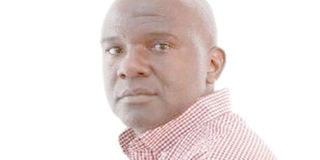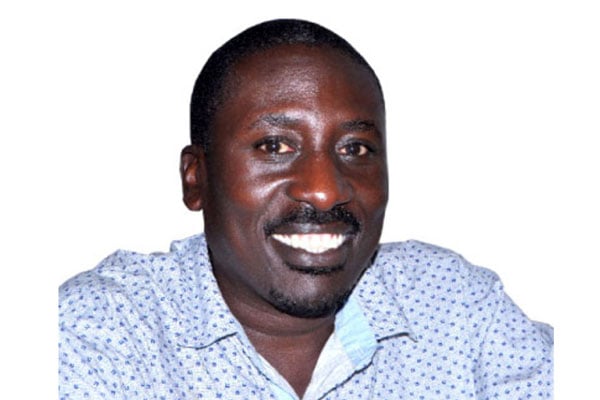Prime
Museveni appoints fishermen to kill many birds

Analysts and observers are weighing in on whether President Museveni’s choice of Prime Minister was the right one or not.
Many compare the past occupants of the office and score Robbinah Nabbanja quite modestly. They say she is not as experienced politically, as Abednego Kintu Musoke and Dr Ruhakana Rugunda. Neither is she as intellectually astute as the late Prof Apollo Robin Nsibambi, or as guileful, tenacious and studious as John Patrick Amama Mbabazi.
They see her as a recent arrival; a semi-rural belle who is a political lightweight and novice with a relatively provincial disposition who will not spice up her speeches with quotations from Shakespeare or J.F.Kennedy. She is in the group of people that Museveni calls fishermen as opposed to pharisees and intellectuals.
She may even have the bug that makes many of us interchange ‘Rs’ with ‘Ls’ leaving one saying colona vilus instead of coronavirus.
The truth is that most of the judgment is premised on form rather than content and lacking a deeper nuance about the workings of Mr Museveni.
In her book, The Struggle For freedom and Democracy Betrayed, Miria Matembe on pages 30 and 31 provides some useful anecdotes from a meeting the Ankole Parliamentary Caucus had with Mr Museveni in the 2000s.
Museveni made statements like, “this Kazibwe (Specioza) you think she is a vice president? What can she do? By appointing her, I kill many birds with one stone; the basoga love me and think I am good because I have appointed one of their own, the Catholics support me, and the women also support me.”
Museveni went on the same way about Gen Jeje Odongo, who was the army commander, and then asked those present if they thought he commanded any army. He told them his appointment was for the purpose of impressing the Iteso who would look at his mounted jeeps and think he had (been given) power.
After Museveni had belittled the then External Security Organisation (ESO) boss, David Pulkol, by asking what intelligence he gathers and telling them that his appointment was to make the Karimojong think he had power, one of those present asked a question.
John Kazoora on page 31 asked Museveni if he meant that he had no vice president, army commander or director ESO and the government by extension. Museveni laughed sarcastically and told those who were present that he had gathered them to teach them how to manage politics!
Looking back at the last 35 years, many things have changed in the politics of Uganda. One of the exceptions is Museveni at the helm. He is still managing the politics his way.
The way he deals with appointments is a response to the prevailing circumstances. Because many of us approach politics rationally Museveni responds to Uganda that way. He will make the appointment to answer the feel good desire of the people. He removes one appointee as a punishment to the rest and the fortunes of that appointee suffer while the replacement is lavished with privileges. The rest is for patronage and mobilisation.
The real power lies right with Museveni and when he feels threatened he puts on his military battledress, tells the violent history which brought him thus far. He then vows to crash anyone who messes around.
No one will attempt to outshine him. Many will humiliate themselves to show that they are compliant.
That is why you hear ministers saying all Ugandans are corrupt except the President and his family. Gen Moses Ali, the current Second Deputy Prime Minister, once thanked the President for imprisoning him (on trumped up charges) because it saved him from his enemies who would have killed him if he was out of jail.
In the end everyone competes for the attention and favour of the big man, falling over each other to catch his eye. Just imagine how many are going to try to outdo themselves to prove that they are better than Nabbanja! Nabbanja herself will work tirelessly to show her gratitude for the appointment at the tender age of 51.
If you look at all the previous Prime Ministers under Museveni, ask what significant ground breaking initiative they made or what foot print they left on the history of Uganda, it is blurred and insignificant.
In real terms a Prime Minister should run the government with supervision from the President. The bearer of the office must have a say or be on top of almost all activities of the government because that is what constitutes government business. They must have a hand in appointing the manpower i.e. suitable ministers to accomplish a well laid-out five year work plan at the end of which we may judge them.
But in our case things like defence, a lot about the economy and public administration right down to the local governments are in the direct control of the President.
The Prime Minister is left to represent the President at functions, reading keynote addresses and answering some questions in Parliament. Nabbanja fits the bill.
Her appointment points to the fact that Museveni is not going to pretend and toy around with a Prime Minister the public perceives as having real power.
As Museveni moves closer to becoming an octogenarian, he realizes that his time is limited. He has to work on his legacy and will not entertain time wasting. He will have a direct hand in running the show to speed things up.
He has already made it clear that if Parliament stands in his way he will ignore them. Nabbanja will not give him that headache trying to use the office to build her own political base. She will just toe the line for smooth sailing.
Mr Sengoba is a commentator on political and social issues
Twitter: @nsengoba




